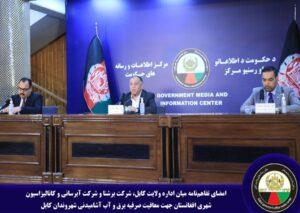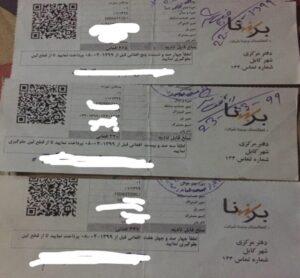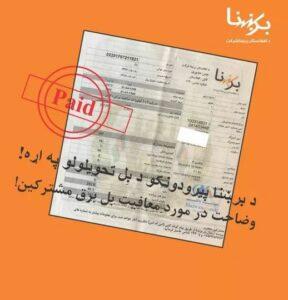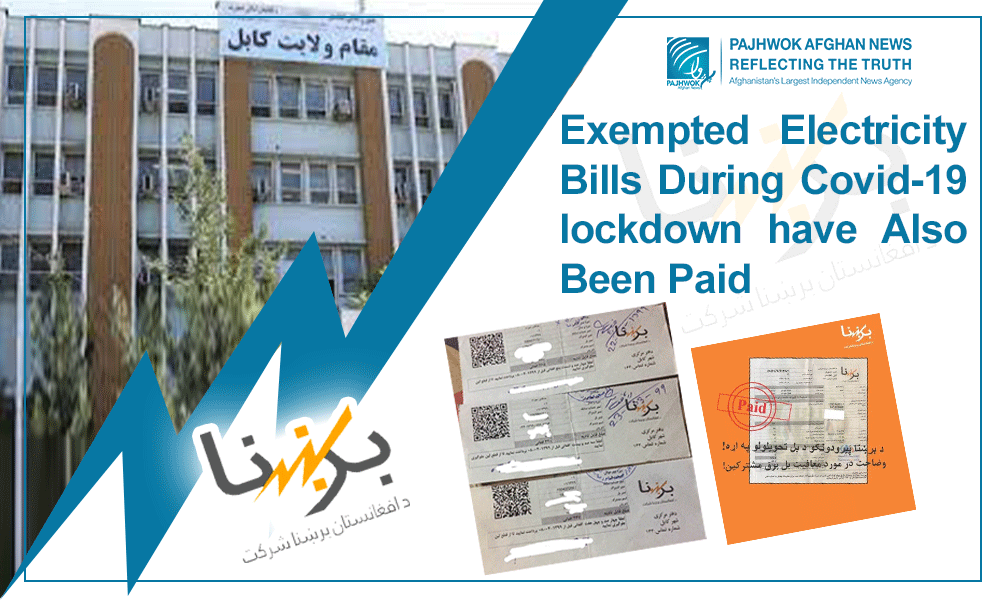KABUL (Pajhwok): Pajhwok’s findings show Da Afghanistan Breshna Shirkat (DABS), despite receiving 142 million afghanis, did not exempt consumers from paying electricity bills who were placed in the exemption category by the government.
The governor of Kabul on May 28, 2020 during the first wave of the Covid-19 pandemic signed a joint memorandum between the Emergency Committee of Covid-19 and DABS, exempting Kabul residents of electricity bills amounting to 1,000 afghanis. DABS have also confirmed the agreement in a statement.
This electricity bill exemption took place in the first wave of the coronavirus in a bilateral memorandum between Kabul Governor Mohammad Yaqub Haidari as chairman of the Emergency Committee on Covid-19 and Ahmad Khalid Stanekzai, DABS’ commercial director.

According to DABS, 293,825 Kabul residents are exempted from paying electricity bills.
However, Pajhwok’s findings show electricity bills of Kabul citizens in the first round of 1399, which were exempted, were paid by the consumers themselves, but DABS says that the exemption was implemented in the first round.

Following this memorandum, DABS clarified the exemption of electricity bills for the citizens of Kabul on June 01, 2020.
“According to the decision of the Emergency Committee, only one round of 1399 (Solar Year) would be exempted from paying the bills by consumers who have consumed electricity worth 1,000 afghanis. Consumers included in this category will therefore are notified of this exemption when their electricity bill is stamped or made available to them with an exemption sign”, DABS announced.
They announced that consumers whose bills do not have an exemption stamp should pay electricity bills without delay.
Meanwhile, Pajhwok’s findings show electricity bills of consumers, which were less than 1,000 afghanis, and were included the exemption category, did not have the stamp and approval of the exemption and as a result, these consumers were forced to pay their electricity bills.

According to DABS, a total of 142,072,279 afghanis had been transferred to a DABS account in two transactions in return for the exempted power bills. The first transaction was amounted to 140,792,329 afghanis on July 13, 2020 and the second transaction which amounted to 127,995 afghanis was made on October 1, 2020. This amount of money was paid to DABS from the budget of Covid-19 Response Committee.
However, DABS announced that residential consumers who had consumed up to 1,000 afghanis worth electricity in the first round of 1399 were included in this exemption.
Najibullah, a Kabul resident said, that his electricity bill in the first round of 2020 reached 785 afghanis, which he had paid.
Ehsanullah another resident of 3th district of Kabul said, that their electricity bill, which was 700 Afghanis and fell in the exemption category, but the bill was not exempted and he paid it.
Da Afghanistan Breshna Sherkat (DABS) said according to the agreement reached between Breshna Company and governor’s house of Kabul, the exemption was applicable only in the first round of 2020.
Pajhwok findings show that not only in the first round, this exemption has not been clearly implemented in the second round as well, there is no sign of approval in electricity bills and clear implementation of this exemption is not seen in the bills received by consumers.
Pajhwok findings show the first round of electricity saving for a Kabul consumer was 302 afghanis and although this amount falls in exemption category, this amount is paid by consumers.
Lack of accuracy and transparency in reporting of meter readings is another problem of consumers and citizens have also complained about overcrowding in this regard.
However, in the joint agreement between the governor’s house of Kabul province and Breshna Company, it is stated: In order to transparently implement this financial assistance, Breshna Company will determine the list of all subscribers whose first period of electricity saving is one thousand or less and with governor house but this has not been implement.
According to the agreement, the two parties must nominate their qualified representatives to the Joint Working Committee in order to implement, monitor and review the transparency of this program.
According to Pajhwok, the committee has not been set up and there is no mention of the presence and supervision of civil society representatives and citizens in the memorandum.
In another part of the agreement, it is stated: Breshna Company will implement the electricity savings of the consumers, report the total number of consumers, the amount of electricity savings and other real documents on a regular and documented basis shared with the governor house.
Pajhwok failed to get information on how to ensure transparency from the go-governor’s house despite many efforts and requests.
However, before implementation of this program, an official of the governor’s house said that he would publish the complete list of subscribers for more transparency, but later this list did not become public.
SangarNiazi, a spokesman for the Breshna department, said that the money for exemption of electricity consumers had been sent to the department via two transactions.
He said in the first step, documents amounting to 140792329 AFN were provided to consumers through the technical branch of M Power System Manufacturer in cooperation with an Indian company under the supervision of Breshna and General management of import of Kabul Breshna department has been implemented to qualified consumers.
Pajhwok’s findings show that the presence of people and other institutions has been quite low to ensure transparency and better oversight of the implementation of this process.
Pajhwok has sent information access forms to the governor;s house; but after several days, the officials of refused to answer.
It is noteworthy that so far there has been insufficient evidence of transparency in the implementation of this assistance.
Bk/hr/ma








GET IN TOUCH
NEWSLETTER
SUGGEST A STORY
PAJHWOK MOBILE APP